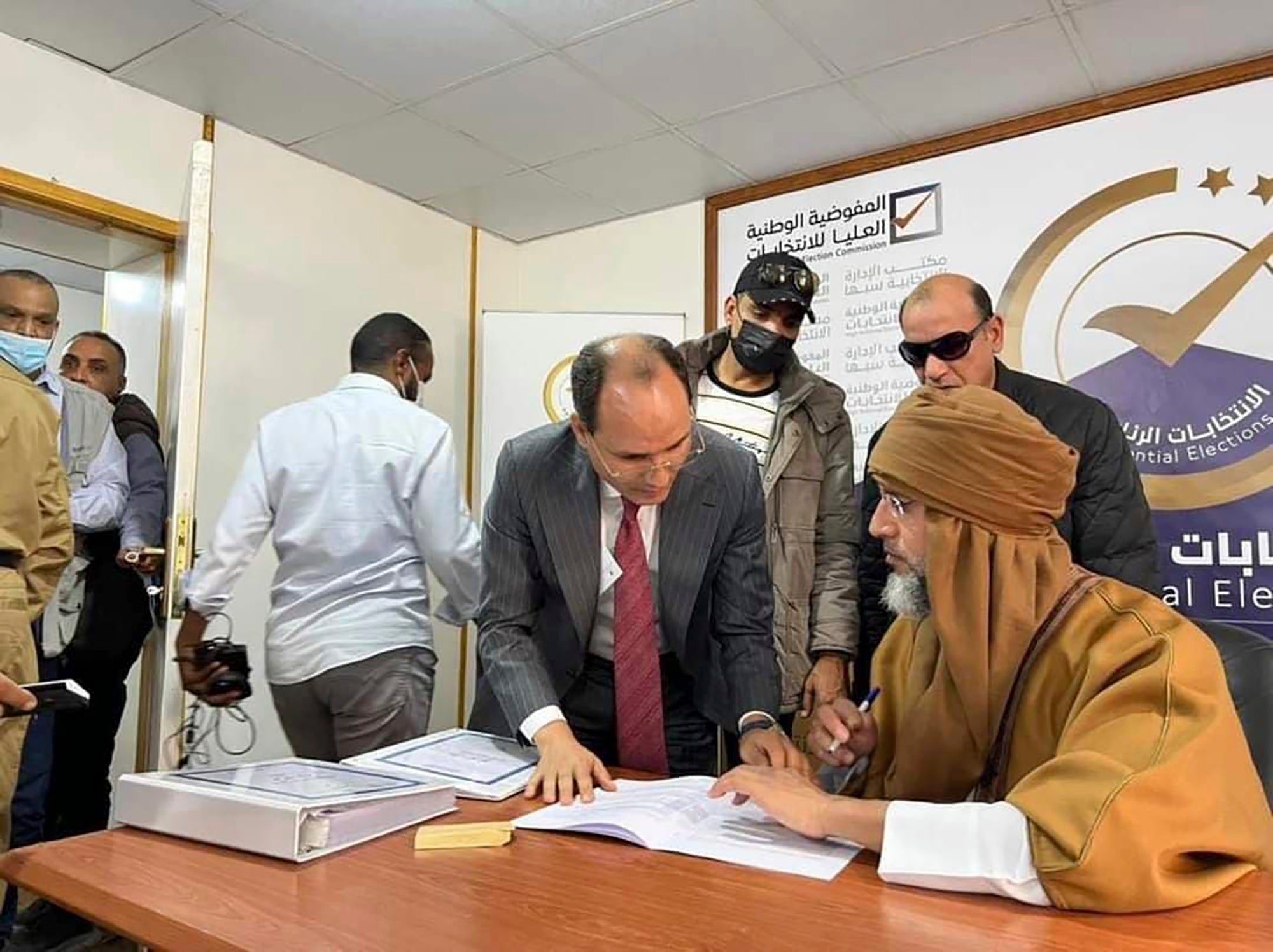Libya parliament says 'impossible' to hold presidential vote
A Libyan parliamentary committee says that it has become impossible to hold a long-waited presidential vote in two days as scheduled

Your support helps us to tell the story
From reproductive rights to climate change to Big Tech, The Independent is on the ground when the story is developing. Whether it's investigating the financials of Elon Musk's pro-Trump PAC or producing our latest documentary, 'The A Word', which shines a light on the American women fighting for reproductive rights, we know how important it is to parse out the facts from the messaging.
At such a critical moment in US history, we need reporters on the ground. Your donation allows us to keep sending journalists to speak to both sides of the story.
The Independent is trusted by Americans across the entire political spectrum. And unlike many other quality news outlets, we choose not to lock Americans out of our reporting and analysis with paywalls. We believe quality journalism should be available to everyone, paid for by those who can afford it.
Your support makes all the difference.A Libyan parliamentary committee said Wednesday that it has become “impossible” to hold a long-awaited presidential vote in two days as scheduled, in a major blow to international efforts to end a decade of chaos in the oil-rich country.
It was the first official statement that the vote would not happen on Friday, although it had been widely expected amid mounting challenges and calls for a delay. For nearly a year, the election was the lynchpin of international efforts to bring peace to Libya, and many have warned that either scenario — holding the vote on time or postponing it — could be a destabilizing setback.
In a letter to Parliament Speaker Aguila Saleh, lawmaker al-Hadi al-Sagheir, head of the committee tasked to follow the electoral process, said the group found “it is impossible to hold the election as scheduled on Dec. 24.” He did not specify whether another date had been set for the voting, or if it had been cancelled altogether.
The country’s election commission disbanded electoral committees late Tuesday, and it never named a final list of candidates as it was supposed to.
Around hundred people had put themselves forward, including several high profile individuals who had been were banned from the race — including the son of late dictator Moammar Gadhafi, who was ousted and killed in a NATO-backed uprising in 2011.
Al-Sagheir said his committee reached its conclusion after “reviewing technical, security and judicial reports.” He urged Saleh, who suspended his duties to join the presidential race, to return to his job so he could “mobilize efforts” to and help “re-draw a roadmap” to revive the political process.
The vote had faced many challenges, including disputes over the laws governing the elections and occasional infighting among armed groups. Other obstacles include a long-running rift between the country’s east and west, and the presence of thousands of foreign fighters and troops in the North African country.
Libya plunged into turmoil after the 2011 uprising and split between rival governments — one in the east, backed by military commander Khalifa Hifter, and another U.N.-supported administration in the capital Tripoli in the west. Each side is supported by a variety of militias and foreign powers.
In April 2019, Hifter and his forces, backed by Egypt and the United Arab Emirates launched an offensive to try and capture Tripoli. His campaign collapsed after Turkey stepped up its military support of the U.N.-supported government with hundreds of troops and thousands of Syrian mercenaries.
The October 2020 cease-fire led to the formation of a transitional government with elections scheduled for Dec. 24. The fate of that government is now unclear, as the Parliamentary committee said the government’s mandate ends on Dec. 24.